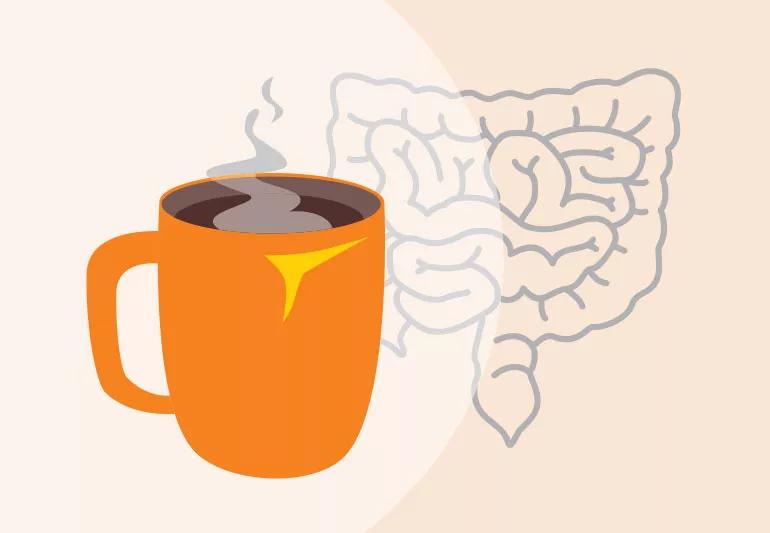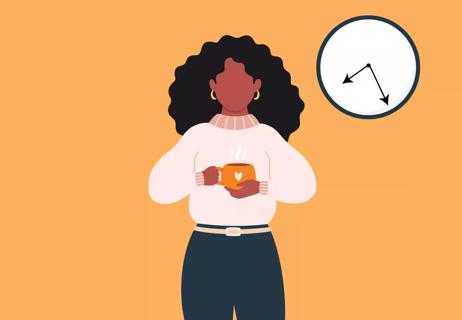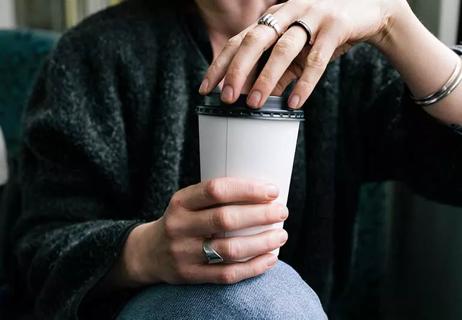Coffee is better (and safer) ingested than injected

Another day, another story about things you shouldn’t put up your bum.
Advertisement
Cleveland Clinic is a non-profit academic medical center. Advertising on our site helps support our mission. We do not endorse non-Cleveland Clinic products or services. Policy
Your digestive system is composed of a complex network of organs designed to provide your body with nutrients and rid your body of the leftover waste it doesn’t need. For the most part, your body cleanses itself without needing any additional help, and scientific research warns against regular colon cleansing.
Despite your body’s ability to handle most functions on its own, coffee enemas are now the next big thing to join an ever-growing list of unhelpful and harmful TikTok trends.
But gastroenterologist Samita Garg, MD, shares why you shouldn’t actually do a coffee enema, along with some safe alternatives to help relieve occasional constipation when your body needs a little help.
Coffee enemas are a lot like regular enemas, except they involve inserting an enema into your rectum that’s filled with fully brewed coffee. Supporters of this method say it can help boost your immunity, increase your energy, remove toxins from your body and treat a number of conditions, as well as help relieve chronic constipation — but there’s no actual scientific evidence to support any of these claims.
“This is not a recommended therapy, and there are some potential risks associated with it,” cautions Dr. Garg. “I do recommend drinking coffee for some people because there is data that suggests it stimulates a wave of contractions in your gut, called peristalsis, and helps food move through your intestines.”
Advertisement
Helping you poop isn’t the only benefit of drinking coffee, as it can also have positive effects on your liver, lower your risk for diabetes and more.
If coffee has so many other health benefits, why should you avoid using it on your other end? Well, for starters, your rectum and the lining of your intestines are thin and highly sensitive. Studies show a coffee enema could cause several adverse effects, including colitis (inflammation of the lining of your colon) and proctitis (inflammation of your rectum).
“Colitis can cause pain or bleeding, and if the enema liquid is hot, it can also cause rectal burns,” states Dr. Garg.
In addition to colitis, coffee enemas can cause tenesmus, a condition in which the nerves in your lower bowels begin to overreact and cause muscle spasms, so you have a frequent urge to go to the bathroom even when you can’t.
“If you experience any of these symptoms, you want to hold off from doing any enemas because they could be causing irritation and further damage,” advises Dr. Garg.
Along with increasing your fiber intake and using over-the-counter laxatives and stool softeners, enemas can be safe and effective treatments for constipation as long as you use the right liquid and use them correctly.
“Enemas can really stimulate things and help with unplugging, so that once stool starts moving from your lower bowels, they can help things move from above,” explains Dr. Garg.
But it’s important to note that you should avoid using an enema for regular colon cleansing.
“We don’t regularly recommend colon cleanses with a lot of liquids or a high dose of laxatives to flush you out on a regular basis because it can lead to electrolyte depletion and dehydration,” she warns.
“Sometimes, people are not able to have bowel movements naturally due to various factors, stressors, medications and other conditions, and that’s when we talk about using dietary therapies, different laxatives and enemas.”
If you’re going to use an enema, you should not use coffee. Instead, use one of the following liquids and make sure it’s cold or at room temperature:
“If you have chronic problems with constipation or you feel this pressure in your rectum, you can use an enema at home by itself or with the help of other dietary regimens and over-the-counter laxatives,” says Dr. Garg.
Once you fill the enema bag with the liquid of your choice, lie flat on your back or on your side and gently insert the tip of the enema nozzle into your anus and up to 3 to 4 inches into your rectum. Squeeze the enema bag until it’s empty of its contents, remove the tip and hold that position for a minute or two for the enema to take effect and until you feel you’re ready to poop.
Advertisement
“Enemas don’t work perfectly,” notes Dr. Garg. “Sometimes, you need another enema to get things moving. Sometimes, they work really well and you get a lot of stool output, and sometimes, liquid just comes out. Whatever you do, you want to be careful and gentle whenever you insert anything into the rectum.”
If you’re dealing with constipation, try eating more fiber, drink plenty of water — and have a cup of coffee and leave the enemas to safer liquids.
But more importantly, if you’re experiencing chronic constipation and find yourself relying on enemas and over-the-counter laxatives to have daily bowel movements, you should see a healthcare provider who can help address what’s going on down below.
“If you’re having rectal bleeding or severe abdominal cramps or any gastrointestinal concerns, see a healthcare provider or gastroenterologist so they can treat any underlying causes that may be contributing to that,” encourages Dr. Garg.
Advertisement

Sign up for our Health Essentials emails for expert guidance on nutrition, fitness, sleep, skin care and more.
Learn more about our editorial process.
Advertisement

The caffeine and natural acids in coffee may trigger acid reflux, but there are ways to lessen the effects

Along with boosting your energy, a moderate amount of coffee can help lower your risk of Type 2 diabetes, liver disease and certain cancers

That cup of joe may help decrease inflammation and remove damaged cells in the vital organ

Coffee is made up of mostly water, but it’s the caffeine you have to look out for

There’s no evidence to prove this supplement can help with weight loss, and it may come with risks

Morning, noon or night — the best time for that cup of joe depends on you

Depending on your sensitivity to caffeine, a late-night cup may be just fine

It’s fine for most, but it can worsen heartburn and ulcers if you’re prone to them

Even small moments of time outdoors can help reduce stress, boost mood and restore a sense of calm

A correct prescription helps your eyes see clearly — but as natural changes occur, you may need stronger or different eyeglasses

Both are medical emergencies, but they are very distinct events with different causes